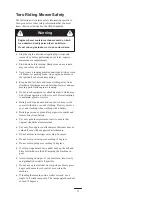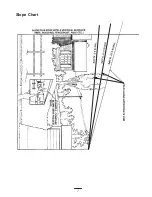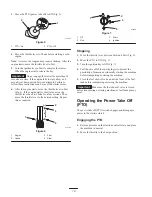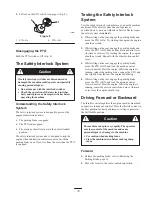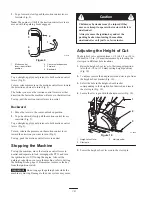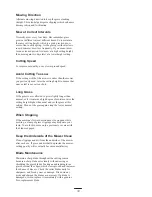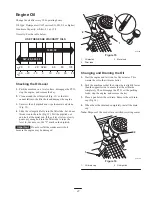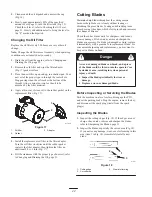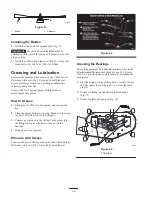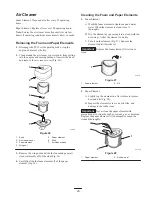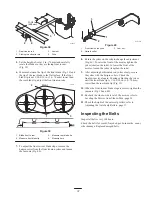
19
Mowing Direction
Alternate mowing direction to keep the grass standing
straight. This also helps disperse clippings which enhances
decomposition and fertilization.
Mow at Correct Intervals
Normally, mow every four days. But remember, grass
grows at different rates at different times. So to maintain
the same cutting height, which is a good practice, mow
more often in early spring. As the grass growth rate slows
in mid summer, mow less frequently. If you cannot mow
for an extended period, first mow at a high cutting height;
then mow again two days later at a lower height setting.
Cutting Speed
To improve cut quality, use a slower ground speed.
Avoid Cutting Too Low
If the cutting width of the mower is wider than the mower
you previously used, raise the cutting height to ensure that
uneven turf is not cut too short.
Long Grass
If the grass is ever allowed to grow slightly longer than
normal, or if it contains a high degree of moisture, raise the
cutting height higher than usual and cut the grass at this
setting. Then cut the grass again using the lower, normal
setting.
When Stopping
If the machine’s forward motion must be stopped while
mowing, a clump of grass clippings may drop onto your
lawn. To avoid this, move onto a previously cut area with
the blades engaged.
Keep the Underside of the Mower Clean
Clean clippings and dirt from the underside of the mower
after each use. If grass and dirt build up inside the mower,
cutting quality will eventually become unsatisfactory.
Blade Maintenance
Maintain a sharp blade throughout the cutting season
because a sharp blade cuts cleanly without tearing or
shredding the grass blades. Tearing and shredding turns
grass brown at the edges, which slows growth and increases
the chance of disease. Check the cutter blades daily for
sharpness, and for any wear or damage. File down any
nicks and sharpen the blades as necessary. If a blade is
damaged or worn, replace it immediately with a genuine
Toro replacement blade.

